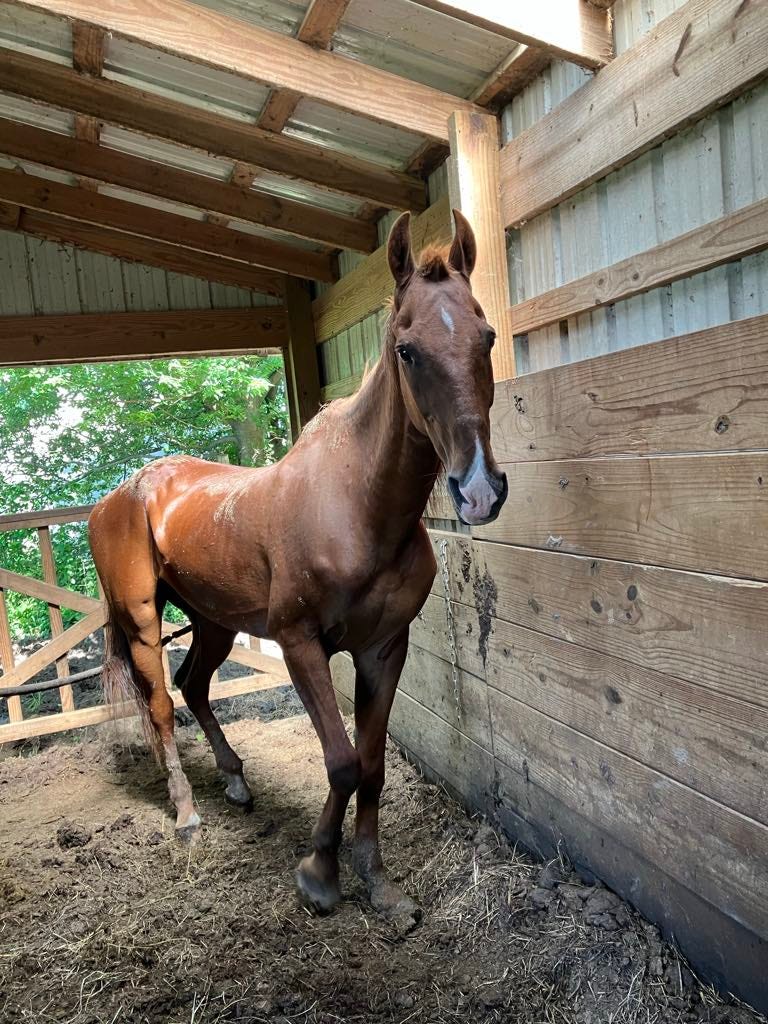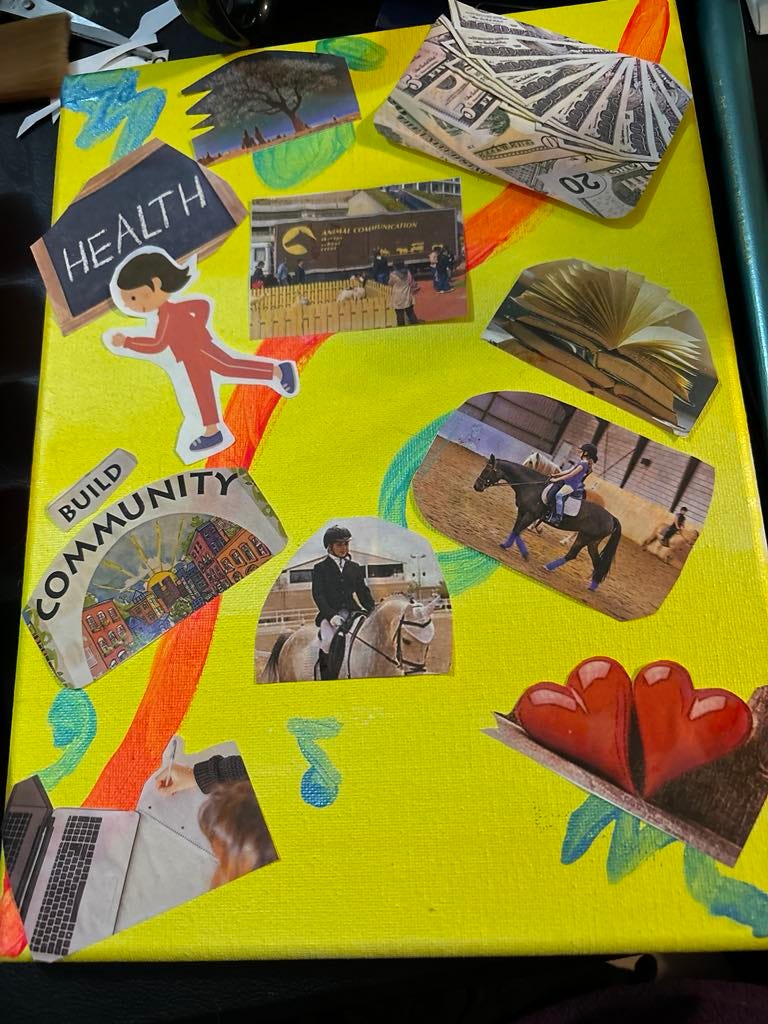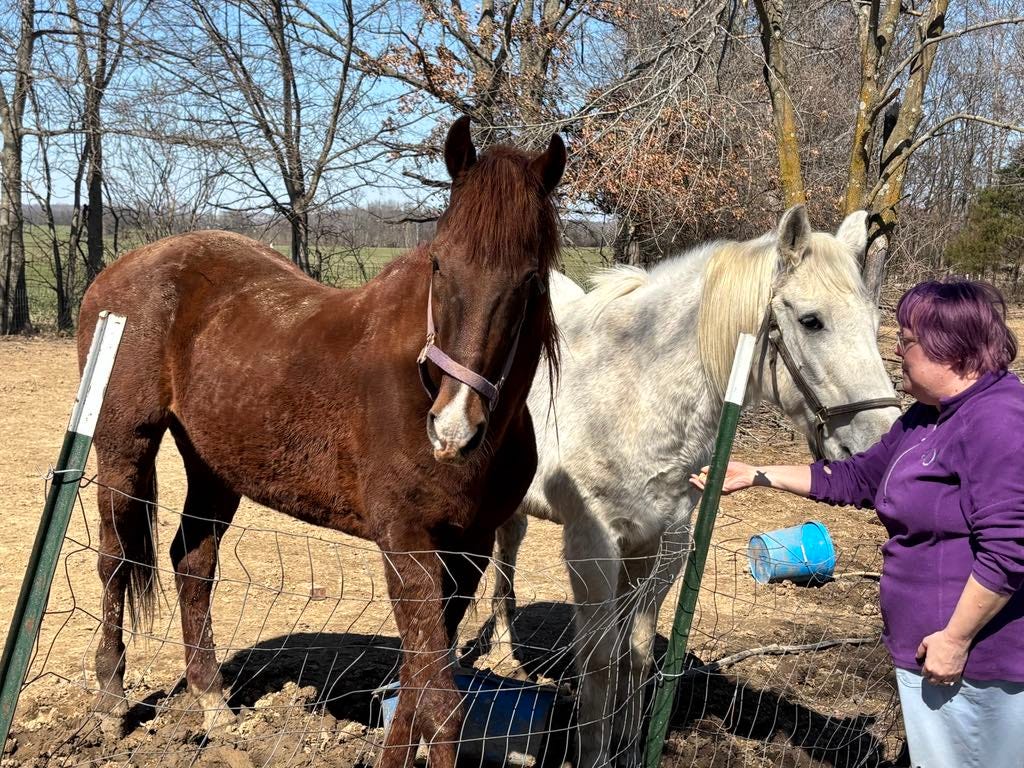What I Learned from an Abused Horse
And what vision boards have to do with hope
The first time I met Nicholas, so named because he had been purchased from a slaughter auction on Christmas day, he was pawing with nervousness in a horse trailer. The young woman who had driven him to our farm led him off the trailer and asked me to take hold of him by his halter. This doesn’t sound like any kind of Herculean feat except when you realize that Nicholas was a sixteen hand horse (i.e. tall) with a long neck that was craning all around taking a look at his new home, and I am all of four feet, ten inches when I’m standing my straightest. You’d think I would have at least hesitated, but there was something gentle about his eyes that told me he just wanted some reassurance he was going to be okay.
I took Nicholas’ halter that day and told him how beautiful he was, even though he was still skeleton-like after six months with a wonderful horse rescue. His legs were all swollen and he seemed to be physically uncomfortable, but his ears were forward and he brought his head down to sniff me, allowing me to pet him for a moment. Even after being starved and worked nearly to death as an Amish buggy horse, he still had hope.
If you pay attention to the news at all, you know hope has been in somewhat short supply in recent weeks. As I’m writing this, prices are rising all around us and Wall Street had its worst day since the Covid crisis of 2020. Around the world, countries are issuing travel advisories for their citizens visiting the United States (or worse, telling them not to visit the U.S.). Those are just a few of the issues we face as a country. We could talk about unemployment, book bans, attacks on law firms and universities, just as a start.
But Nicholas shows me hope can be found in the most unlikely places. And joy can emerge out of the most humble situations. Our small farm can’t have looked promising to the big guy, with only one other horse here, but he was open to the positive in his new situation. He expected kindness, even though he hadn’t necessarily seen much of it.
Lately, I’ve been learning about meditation and the power of visualizing and expecting what you want. I did a vision board this year where I visualized some of the things I want: better health, more time with my horses, a better financial future, etc. I also want to finish editing my novel and to get it out on query by the end of the year.
Vision boards and setting daily intentions are becoming really important to me. I find they help me keep my goals in front of me every day instead of becoming lost in confusion or despair. I found this blog post on the power of vision boards that talks about the science behind the concept of visualization: https://alicedartnell.com/blog/vision-board-a-powerful-tool-to-achieve-your-goals/. I hope you check it out! Here’s my vision board for 2025:
As for Nicholas, he found what he was looking for: kindness, love, and lots and lots of food. He’s looking healthy and strong, now, and if he wants to, he’s ready to start new adventures playing with me. As a seventeen-year-old horse, he has a lot of life left to enjoy. Here he is this past week, with his friend, Smokey.
I’d love to hear what you think of vision boards and setting intentions, or any interactions you’ve had with abused or neglected animals that taught you something. Feel free to leave a comment!






Beautiful, Elizabeth. I can see why Nicholas has found hope and flourished under your loving care.
In spring of 2018 I made a collage of what inspires me, it is kind of like my own vision of a vision board, and it's funny you wrote about vision boards because I've been thinking more and more about them since my Kaicee girl crossed the rainbow bridge. I realize I need to keep focus and perspective! You never cease to inspire me, Elizabeth! Thank you for sharing and writing Writing Everything! :-)